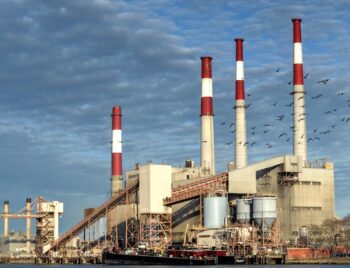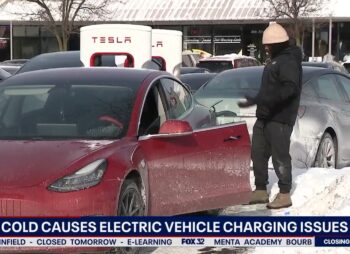
The resolution, proposed by Republican Reps. Steve Scalise of Louisiana and David McKinley of West Virginia, is simple, “expressing the sense of Congress that a carbon tax would be detrimental to the United States economy.”
Yes, we know. A resolution does nothing. Similar anti-carbon tax resolutions passed the House in 2013 and 2016 and meant nothing. Yet a resolution does one thing that matters: It puts people on the record.
What Scalise and McKinley say in their resolution, while simple, is almost a truism, economically speaking. But to hear its advocates speak, you’d think the carbon tax was manna from heaven. Not only will it cut fossil-fuel use and cool the planet, but it will instantly fill America’s pockets with a near-endless supply of money, making all things desirable possible.
In truth, it’s a sneaky tax that turns out to be a levy on work, business and American consumption, a lever to pull down our standard of living while enlarging government even further. Is anyone for that?
The superficial purpose, of course, is to make carbon-based fossil fuels more expensive to use. But fossil fuels are a blessing, not a curse. They are in large part responsible for the record growth in the global economy in the past two centuries and especially over the last 18 years, helping to pull literally hundreds of millions of once-destitute people out of poverty.
“Energy is the lifeblood of any economy,” wrote H. Sterling Burnett, a senior fellow on energy and the environment at The Heartland Institute. “A carbon tax would increase energy prices and thus cost jobs, making it difficult for U.S. companies to compete with foreign rivals and punishing the poor.”
Not exactly the winning sales pitch for carbon taxes that supporters want to hear.
Yet, a well-meaning group of eminent Republicans has formed what they call the Climate Leadership Council to push for a carbon tax. They’re mistaken in doing so.
They seek a $300 billion a year tax on carbon. But what would that do? It would instantly raise prices for energy across the economy. And that $300 billion would rise over time.
Yes, energy prices would rise, they say, but we’ll give the money back to taxpayers in the form of a rebate. So who’s hurt?
Well, everyone, as a matter of fact. For one thing, the impact of global warming, the only reason for passing a carbon tax, has been exaggerated. So we’re creating a tax to mitigate a problem that, so far, hasn’t shown itself to be serious.
“(E)ven the EPA’s own models show that entirely eliminating all carbon emissions in the United States — and impractical and undesirable goal — would reduce warming by little more than a tenth of a degree by the end of the century,” wrote Andrew F. Quinlan, president and co-founder of the Center for Freedom and Prosperity, early last year. Over just 20 years, that would be $6 trillion in added taxes to nick a mere tenth of a degree from the global temperature. This is plainly unreasonable and foolish.
Worse is the sophistry of the argument, one that suggests that everyone — including poor households — will get rebates of $2,000 a year or more a year. If they do, those rebates will be spent on higher prices for energy, manufactured goods, and services. So it’s a shell game, another form of leftist income redistribution, nothing more.
Worse, a carbon tax is really a tax on capital, since it lowers the return to businesses of their investments by increasing their costs. So it’s a recipe for economic stagnation, fewer jobs, and lower incomes.
Then there’s the political reality of Washington.
No one should believe that a “tax,” once agreed to, will remain as it is. It would only take a change in government, with the increasingly far-left Democrats in power, to change a tax “rebate” for taxpayers into a revenue stream to feed big government.
Anyone who believes that Democrats, who have staked their election success this year on a call for a repeal of Trump’s tax cuts, will do anything but spend the extra $300 billion a year in carbon tax revenue has probably been smoking too much of that now-legal California herb.
Nor are we alone in believing this.
“A carbon tax is like all other ‘progressive’ climate policies,” wrote Competitive Enterprise Senior Fellow Marlo Lewis. “All ratchet up over time until their politically-disfavored victims are financially depleted and politically marginalized. In short, a carbon tax is a form of economic warfare waged by the government against otherwise perfectly lawful enterprises. That is not how business is done in a free society and this resolution from Reps. Scalise and McKinley get it exactly right.”
That’s dead on. The last thing the U.S. should be considering right now is a deadly new tax on the economy. Yet, that’s exactly what some want to do.
Read more at Investors

















Do remember that one goal of the climate change movement is de-industrialization. The economic impacts accurately described in this article is what they are after. Another major goal of the climate change movement is an excuse to impose new types of taxes.
Case in point British Columbia Liberals shoved a carbon tax down
citizens throats as a “tax neutral ” scam . It didn’t take long before that little bit of political BS was forgotten and the new cash cow
went into growing government and screwing consumers .
Claims by left wing university professors of it’s success are complete garbage .
In the case of natural gas the commodity price was $10 per GJ when the tax was imposed in 2008 . It is now about $1.50 before the carbon tax . The carbon tax cost, $ 1.73, is now more expensive than the actual commodity .
The carbon tax is a direct assault on the poor and middle class as well as most businesses .
The economic theory didn’t count on a collapsed fuel price and the notion of price signals is blown out of the water . The combined commodity price and carbon tax are roughly 1 / 3 of the market price of 10 years ago when this scam was imposed by the Liberal left wingers who have now been run out of office .
Most of BC’s population is a short drive to a USA border town and that trip can save drivers $ 30 per tank by avoiding the stupid
policies of the Liberal government . (USA Democrat translated ) .
Six different gasoline taxes in Vancouver result in the highest taxes in North America with $ . 50 per litre or approx. $1. 90 per USA gallon . For someone driving 20,000 km ( 12,000 miles per year) the taxes alone are approx. $1200 per year .
No wonder the politicians are trying to blackmail fossil fuel companies into sue /settle based on a scam .